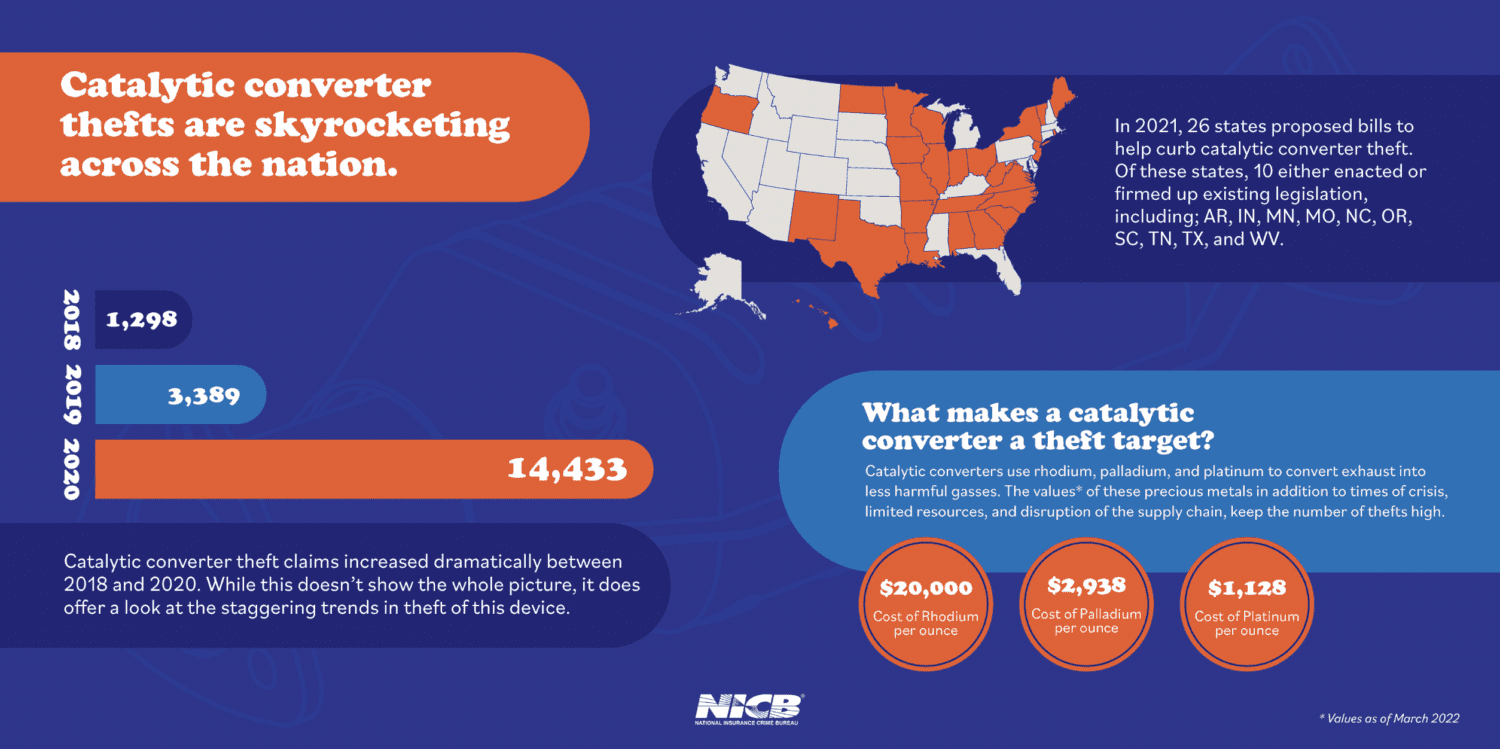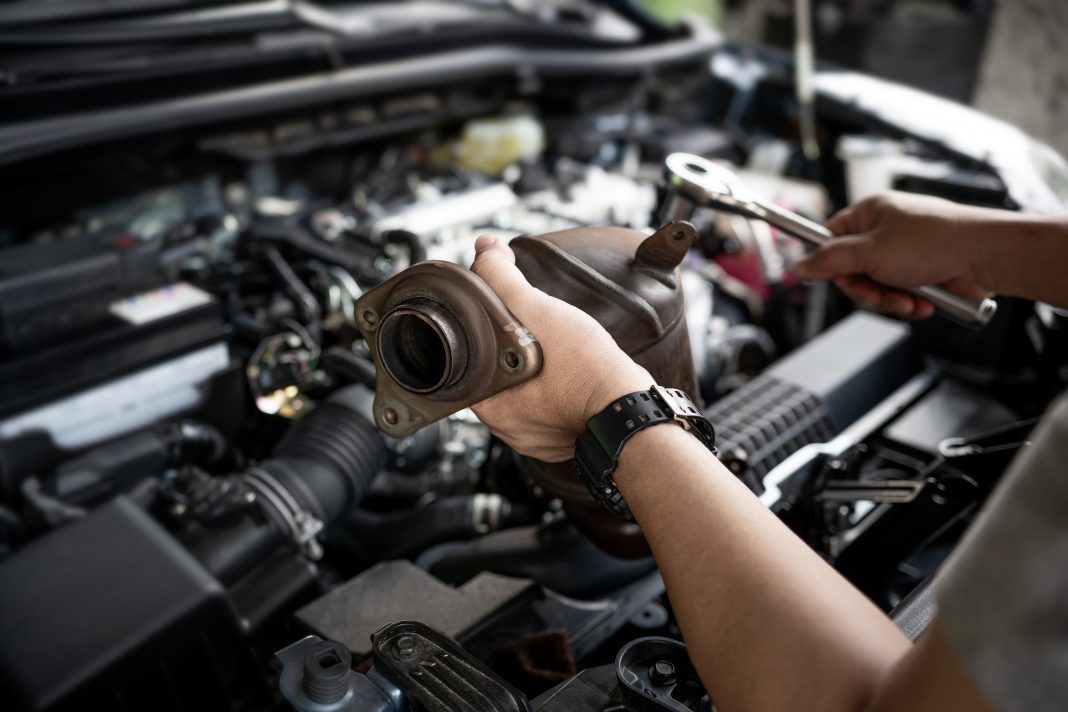Catalytic converters are a crucial part of a car’s exhaust system and transform hazardous chemicals from the engine’s emissions into more environmentally-friendly gases. Not having one can result in engine performance issues, resulting in costly repairs for consumers.
So, what are states doing to prevent this problem, why is it happening, and are certain cars being targeted the most?

Why do thieves keep targeting catalytic converters?
Catalytic converters have become a valuable commodity for thieves, primarily due to the materials needed to make them. Catalytic converters are typically composed of platinum, palladium, and rhodium, precious metals that have skyrocketed in value over the past couple of years due to supply chain issues brought on by the pandemic and the Russia-Ukrainian conflict.
For example, as of March 2022, rhodium was $20,000 per ounce. These metals can be a big payday for someone looking to steal a catalytic converter.
Which cars are at the most risk?
According to David Glawe, president, and CEO of the National Insurance Crime Bureau, these are the cars that are likely the most targeted for catalytic converter thefts:
Electric and hybrid vehicles: Some hybrid cars have a higher amount of precious metals in their catalytic converters than conventional cars.
Cars that are higher off the ground: Cars with higher clearances make it easier for thieves to get under them to steal the converter and get away more quickly. This is especially a problem since it only takes someone 30 seconds to steal a catalytic converter. So, vans and possibly even trucks with lift kits could be at risk.
What are states doing to curb the catalytic converter thefts?
In 2021, 26 states suggested bills to halt catalytic converter theft. Of the 26 states, ten went ahead and passed their legislation. Here is a quick snapshot of current laws:
- Maintaining records of purchases – Arkansas, South Carolina, and Texas passed laws requiring scrap metal buyers to keep records of their purchases, including details like proof of ownership and even the seller’s address.
- Increasing seller restrictions – Indiana, Missouri, and Tennessee hold scrap sellers that sell catalytic converters to the same restrictions as those that market other valuable metals or vehicle parts.
- Seller licenses – North Carolina, Oregon, and West Virginia prohibit a scrap metal buyer from buying a detached catalytic converter unless the seller has a licensed business like being a dealer or owning a repair shop. Also, sellers have to have proof of ownership for catalytic converters.
Additionally, Minnesota has started a Catalytic Converter Prevention Program to enhance the state’s efforts to better manage the handling of catalytic converter theft crimes.
What you can do to prevent catalytic converter thefts
For dealers looking to protect their car from possible catalytic converter theft, the NICB recommends:
- Parking any fleet vehicles in a secure, well-lit, and alarmed area.
- Installing an anti-theft device on a catalytic converter.
- Have the vehicle’s VIN number etched on the catalytic converter for easier tracking.
- Make sure you have insurance that covers catalytic converter theft.
Time will tell if the current — and potential future — laws, along with dealers and consumers implementing the NICB’s tips, can help to stamp out the rise of this crime.
 Did you enjoy this article? Please share your thoughts, comments, or questions regarding this topic by connecting with us at newsroom@cbtnews.com.
Did you enjoy this article? Please share your thoughts, comments, or questions regarding this topic by connecting with us at newsroom@cbtnews.com.
Be sure to follow us on Facebook, LinkedIn, and TikTok to stay up to date.
While you’re here, don’t forget to subscribe to our email newsletter for all the latest auto industry news from CBT News.








